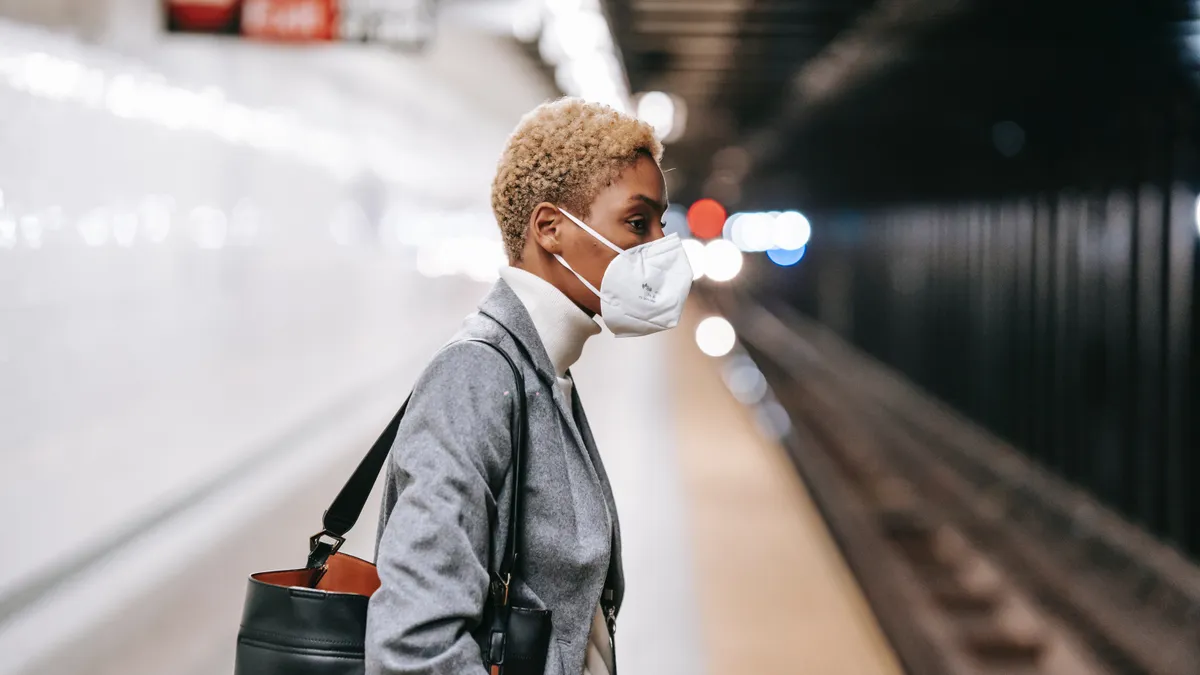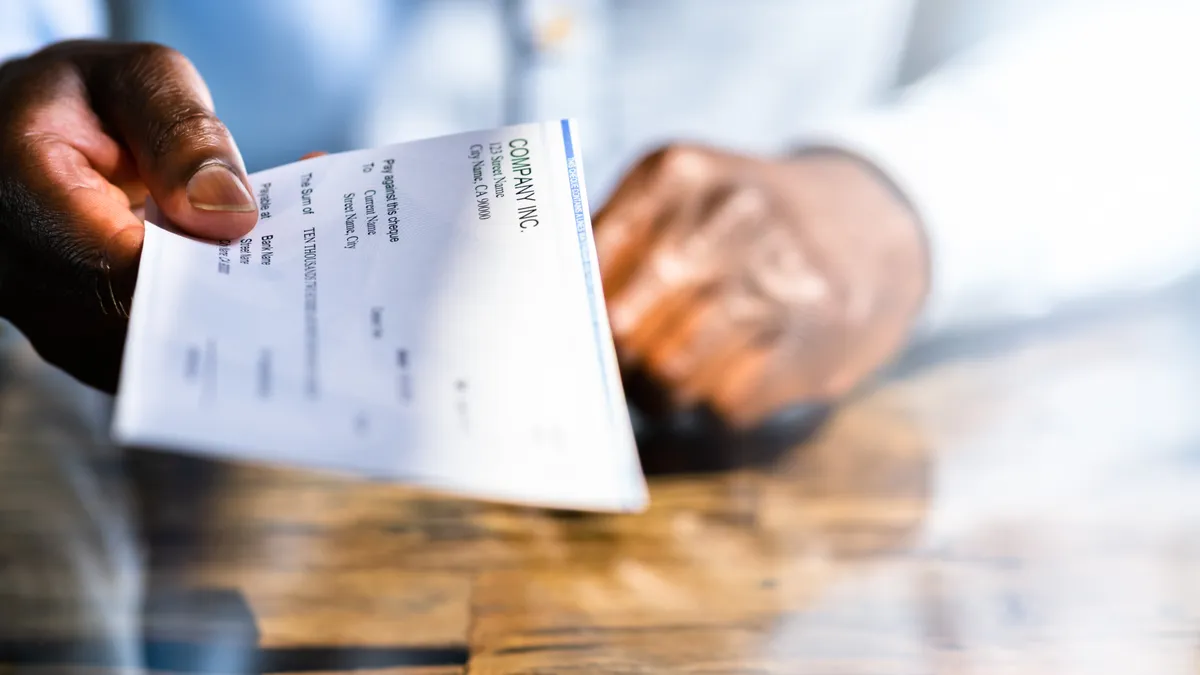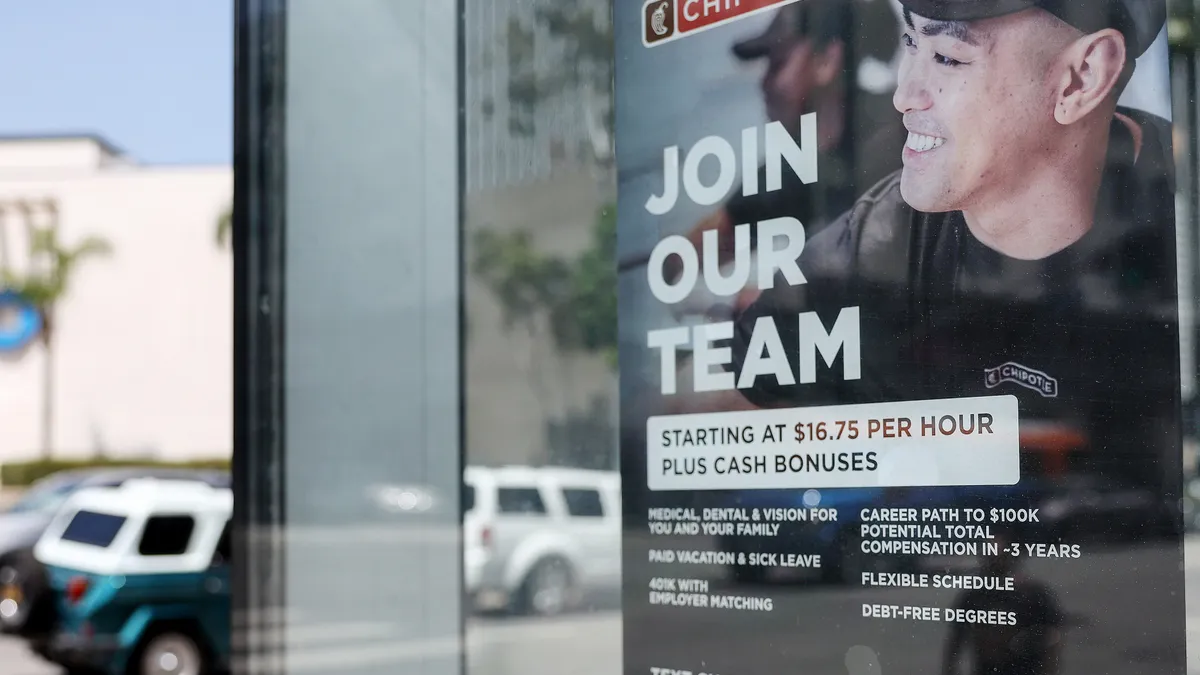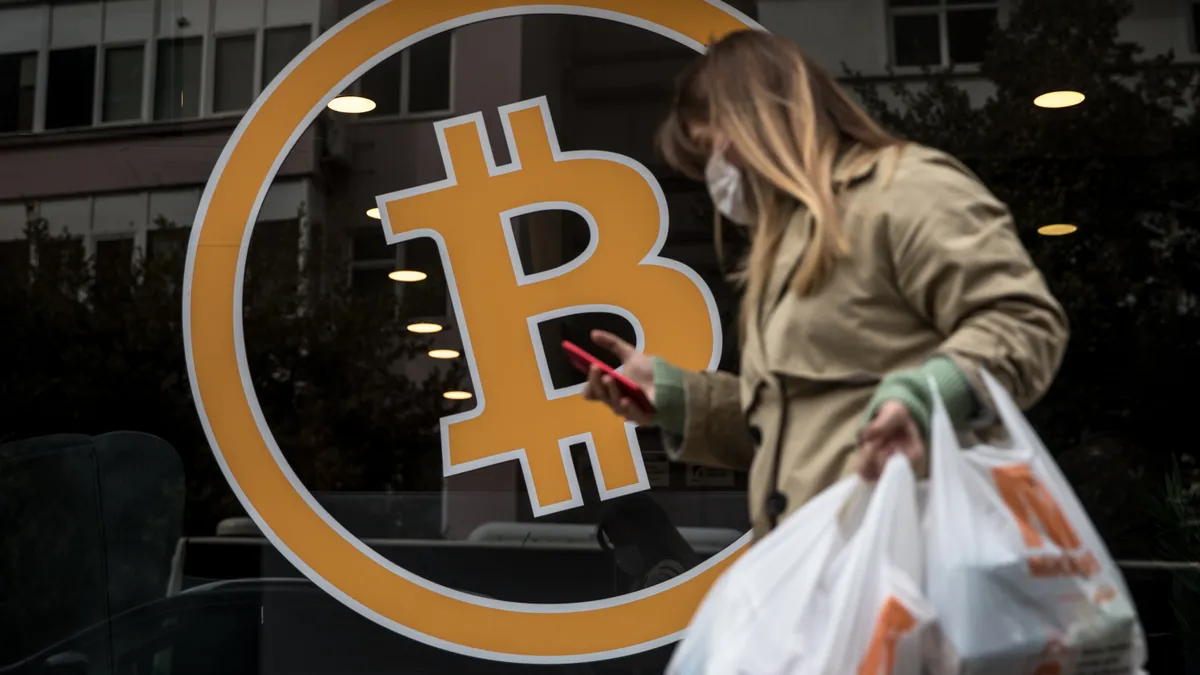Workers are taking fewer sick days. That's an easy win for employers, right?
According to a report released in December by HR tech platform Beamery and Atomik Research, two-thirds of U.S. workers said remote work options added pressure to work while sick. Thirty-nine percent of the 5,000 survey respondents said they are now more likely to work through illness, and more than a quarter said they thought sick days were disappearing altogether.
Beamery wasn't the only one to observe the trend. The U.K.'s Office for National Statistics reported in March 2021 that sickness absence rate fell to 1.8% in 2020. The fall marked the lowest recorded level since the government began recording the data in 1995.
Employers may appreciate that the disappearance of the sick day cuts unpredictable absences and boosts productivity. But those boons come at a cost, sources told HR Dive. Facing high resignation rates and exhausted workforces, employers will need to consider whether they truly want to let the sick day fade from working norms.
Working while sick predates the pandemic
The Beamery report highlighted workers' observation that sick days might be fading quickly — a phenomenon that sources attributed to the hyper-hybrid work environment introduced by the pandemic. But employees have long blown off the sick day, according to Adam Calli, founder and principal consultant of Arc Human Capital.
"Before we heard of COVID, we — the American workforce — were known for not using vacation days and other time off," he said.
Data backs up Calli's observation. Ninety percent of workers in a 2019 Accountemps survey said they came to work with cold or flu symptoms. A third of the 2,800 workers polled said they always went to work when they felt ill. The survey revealed workers' motives: 54% said they still showed up to work because they had too much to do, and 40% said they didn't want to use their sick time.
Workers continued to report for duty while sick during the pandemic. One in five workers in a March 2021 Just Capital and Harris Poll survey said they had gone to work sick since the start of the pandemic.
"People have good reason to fear that something more catastrophic might come along and they'll need the sick days later," Calli said.

Adam Calli
Founder and Principal Consultant at Arc Human Capital
It's worth noting that the respondents' reasoning differed from that of respondents in the 2019 report. This time around, a third said they worked while sick because they were afraid they would lose their jobs if they called out. Another third said they had no paid leave to cover their time off. And 28% said they feared their sick time would anger their manager or employer.
The findings from Just Capital arrived in the spring of 2021, just a few months after federal pandemic leave provisions expired. Despite an urgent call for more generous federally mandated sick leave, there has been no action to replace the temporary coronavirus programs.
As emerging data signals U.S. workers' continued strike on sick days, Calli attributed the hold-off to fear. Without a safety net of sick leave, workers are likely thinking they need to forgo sick days for the stomach bug or the common cold so they can have plenty of days in the bank to use if they come down with COVID-19, he said.
"People have good reason to fear that something more catastrophic might come along and they'll need the sick days later," Calli said.
Workers' sick day hesitation may also stem from harsh workloads, he noted. With high resignation rates, many workforces are struggling to meet deadlines, Calli said. Someone with a nasty cold may choose to down some DayQuil, put on some sweats and vanquish their inbox, all from the comfort of their couch.
Is this a net positive for employers?
Employers may be pleased by the idea that more work is getting done during the traditional cold and flu season. They may be even more delighted to find that flexible working arrangements did not doom productivity, as many feared during the rush to remote work during the spring of 2020.
"The idea that people working from home are working less is false," Beamery CEO Abakar Saidov said. "The flexibility of the work environment took out some of the traditional constraints around work. It means people can work more."
Both Calli and Saidov spotted the same trouble brewing in this reality. While increased productivity may appeal to employers, it won't serve them long term.
Employees are paying close attention to the way employers treat their welfare and health, Saidov said: "The pandemic created a huge shift in employees' awareness of their mental and physical health."
Both Calli and Saidov noted that employees have more power in the current labor market due to the Great Resignation. When workers feel taken advantage of by their companies, they're able to quickly find a company that will respect their boundaries more, and potentially offer better compensation and rewards on top of that.
An employer's sick day policy — or lack thereof — plays a part in establishing how they value employee health. And with continued flexibility, employers have another chance to show that sick days are important, even when they're easy to forego, Saidov said.
Pick a policy and stick to it
Saidov recognized the different schools of thought surrounding sick day policies in flexible working environments. He's seen some employers create an unlimited holiday policy that allows workers to take as many days off as needed. Other employers have introduced specific buckets of leave to meet different needs for time off.
Calli questioned whether the current struggle to get employees to log off for sick time may spell the end of PTO. When employers transitioned to PTO models in the last two decades, they lumped all time off into one category.
"I wonder if some companies will reverse course because of this problem," he said. "People are loath to use PTO for sickness — they'd rather use it for beach time. But if I as an employer have separate buckets of time, it's easier to monitor how employees use their time off."
Whatever policy an employer chooses, it's imperative that it's adopted and modeled, Calli and Saidov said.
"Employers can set the expectation and the corporate standard, and leaders need to role model this," Calli said. When a manager gets food poisoning and decides to take the day off to rest, she needs to email her team and communicate to them — sparing the details, hopefully — that she's ill and plans to step back. The next time one of her reports is sick, they'll likely follow suit.
"Small actions like that will have an impact, especially over time," Calli said.






















